Navigating through the BC Floods
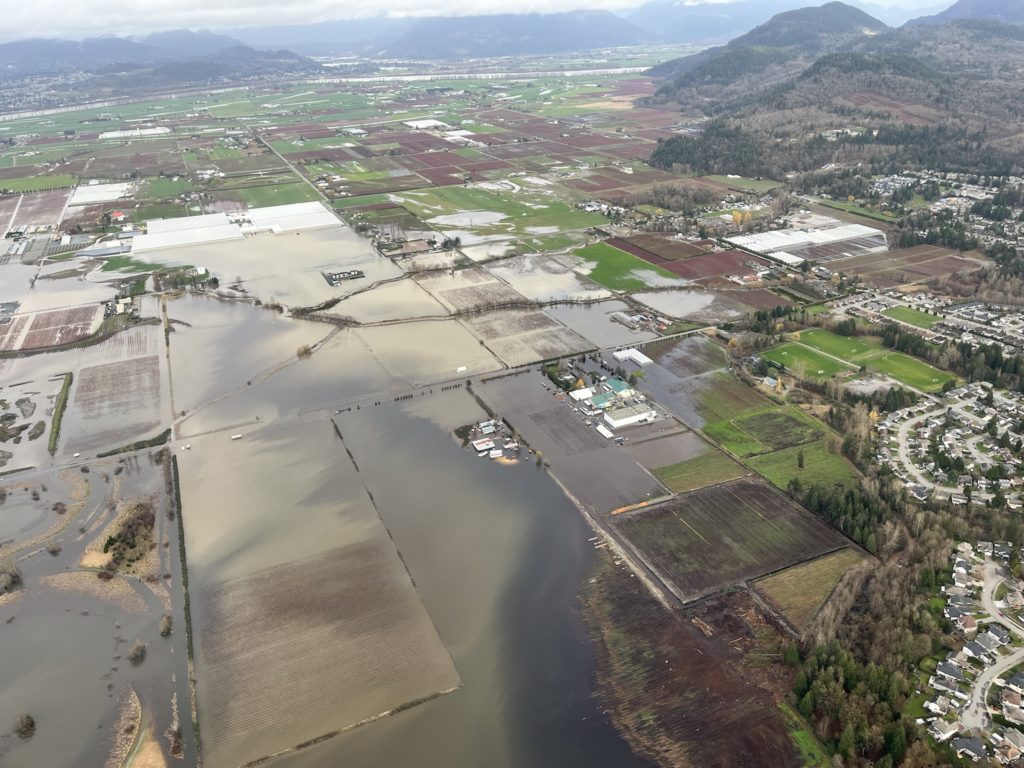
When Dale and Kim took over running a country market in Abbotsford, B.C., they never thought their biggest challenge would be trying to protect their business from raging flood waters.
In November 2021, the B.C. government declared a state of emergency following historic widespread flooding across the province. The impact was devastating, resulting in almost 15,000 people displaced and $450 million in insured damage. Sadly, four people lost their lives and thousands of livestock died.
Dale and Kim found themselves affected by this nightmare and were desperate for help.
“We watched the water approaching,” Kim recalled, adding that the couple had the luxury of seven hours to move as much stock and equipment as possible out of harm’s way. “We shouldn’t have stayed as long as we did. The place was an island (when we finally got out).”
In the end, several of their fridges were flooded, the walls and floor were waterlogged, and the couple’s meat and poultry supplies were ruined.
Thanks to the generosity and urgency of our supporters, Global Aid Network (GAiN) was able to partner with Samaritan’s Purse to send help to those who were affected. This included supporting the evacuee shelter in Abbotsford and equipping volunteers to clean out 200 flooded homes and businesses with special anti-mold spray.
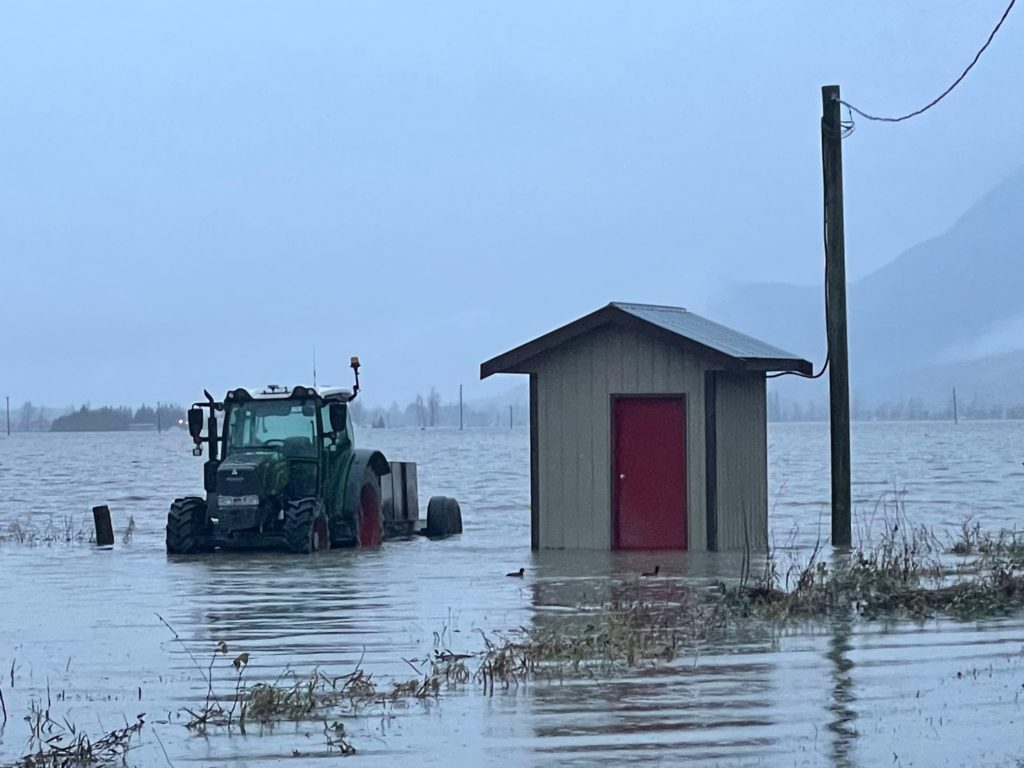
Kim and Dale were two of the hundreds of people who received help. Tractor trailers were equipped to help Kim and Dale, along with many others in Abbotsford and Merritt.
Volunteers that were outfitted in Tyvek safety suits also worked to prepare Dale and Kim’s business for repair by removing waterlogged contents and applying the special spray to prevent mold.
The couple expressed their profound appreciation. “The crew has been so amazing,” Dale said. “They’re leaders without being controlling. It’s such a beautiful thing to watch.”
Kim added: “The volunteers are so amazing, so focused. And when they prayed for us, I just lost it. Thank you so much for giving. I don’t know how we would have gotten through this without [help].”
While this work was being done, God opened doors for Samaritan’s Purse and chaplains from the Billy Graham Evangelistic Association to share the love and hope of Jesus. When each job ended, volunteers gave a special gift of a Bible to homeowners.
Since some of our supporters and staff were affected by the flooding, we were grateful to be in a position to help reveal hope and restore life locally. We are also thankful for those who were able to partner with us to give generously, volunteer their time, and pray faithfully for everyone who was impacted by the situation.
Story by Pau A. (March 11, 2022)
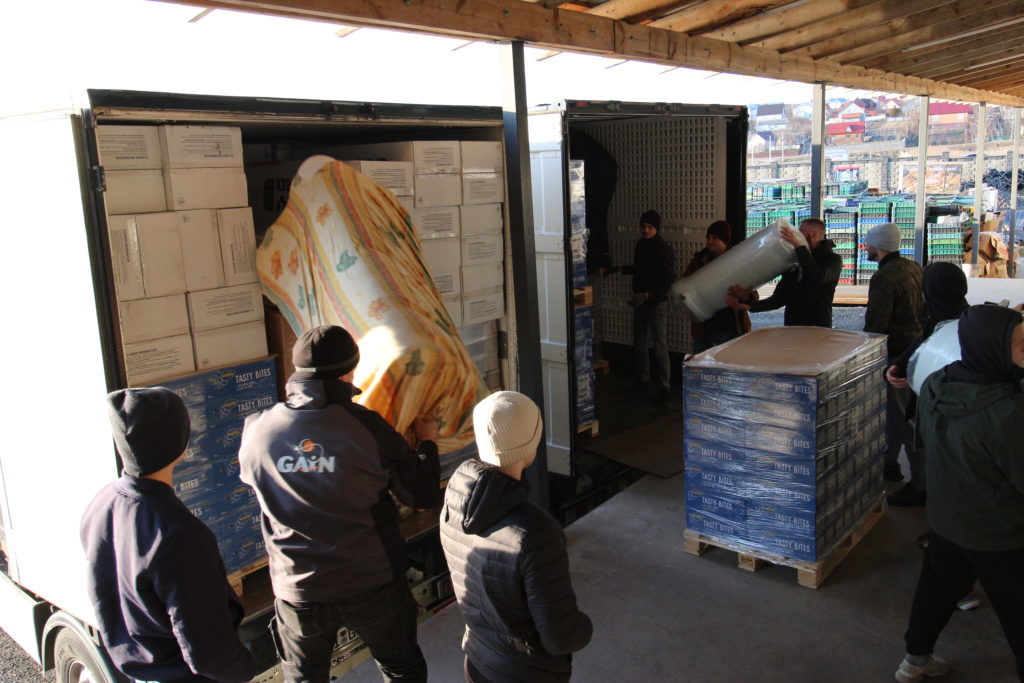
We arrived later than expected, but we are finally here. The entry to the warehouse is a tricky one, but our experienced GAiN drivers could manage it even with their eyes closed. In front of us, there is a group of about 20 to 30 people, most of them young men, volunteers from our local partner within Ukraine. Tomorrow, a fleet of cars and vans will come here from different parts of the country to bring GAiN’s aid to the hardest-hit areas of war.
These are the real heroes of war. People arriving from war-torn cities and towns under the eye of fire and shellings, just to go back and deliver basic supplies to their neighbours. We cannot feel any other way than privileged to be a small part of what they are doing by helping and enabling them to alleviate so much suffering taking place right now and here.
“Right after the war began, four or five days later, these were the first guys who took the minibuses, the food from their salaries, simple food, all they could, and they were the first ones, they did not wait for anybody,” says Sasha, our local partners’ main contact. He is surrounded by other two Sashas (formally Alexander). All three of them are the main people responsible for coordinating the efforts being done to deliver aid to the different regions and to accommodate families moving to the border.
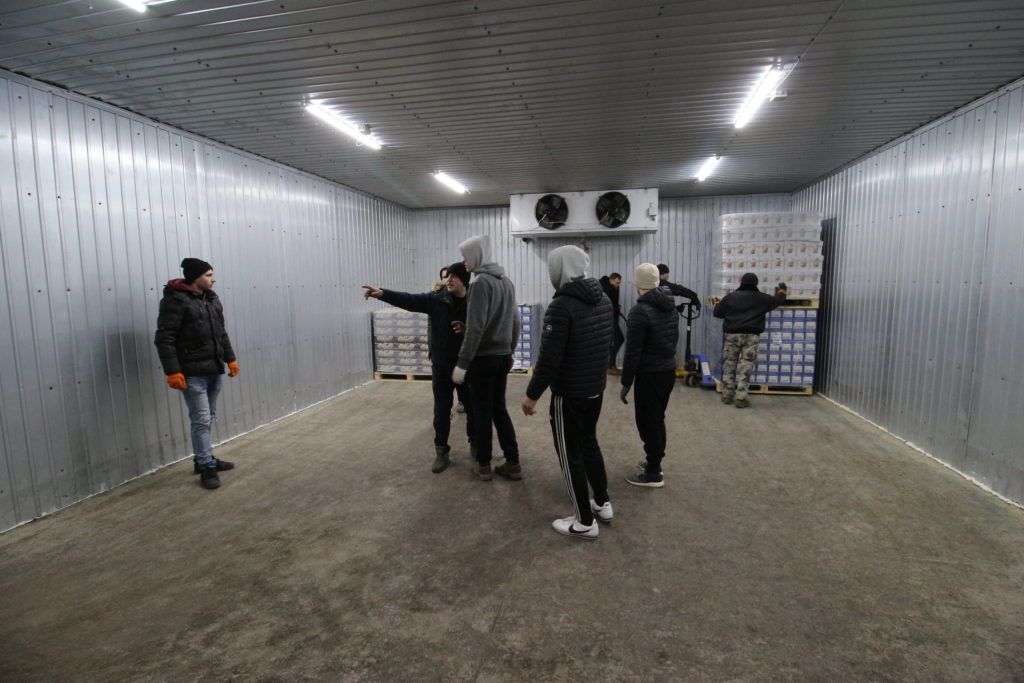
Sasha comes from Vishgorod, north of Kyiv. Today, his church and many other villagers from Vishgorod were able to evacuate. “Kyiv is still working good because there is still an open side where they can bring in the food,” he explains. “Those cities that are surrounded are in a more difficult situation.”
Sasha is happy that we could enter the country and meet them personally: “Western Ukraine became the hub for receiving the aid and send it. Here it is safe, this road is safe. I wouldn’t send you anywhere further, but here is safe.”
Sasha is driving more around the country, but who is really taking care of the warehouse we are now is the other Sasha by his side. “In the evening this is full,” he says. “But tomorrow there will be nothing here. Many buses, light trucks and even bigger ones, we are loading them here and sending them to Kyiv, Kharkiv, Poltava…”
Their network of churches is present in the 24 provinces in Ukraine. “As soon as we get something,” he continues, “we arrange the transportation and take it to the person who is responsible for the area.” The first Sasha takes over this point of the conversation: “Here in the phone there is a group with 25 church leaders and tonight,” he points to the second Sasha, “This man will see the specifications and will say to the 24 leaders: guys, we have this and that… So, already tonight or in the morning these guys will know what you have brought here.”
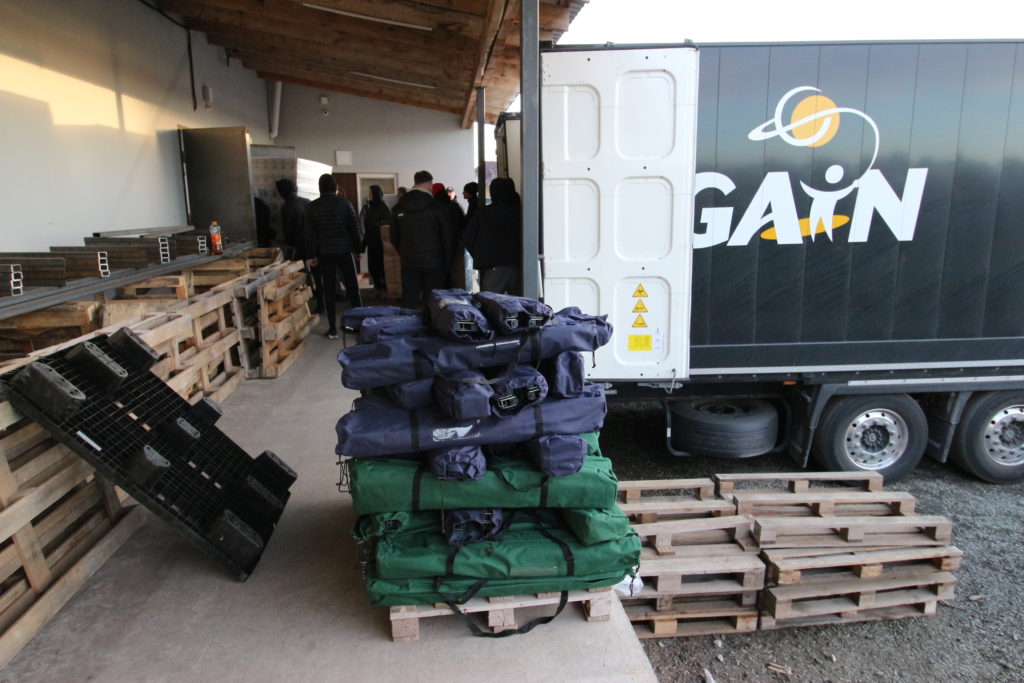
He keeps on going: “A lot of people now they evacuated from their homes, they have no basic things… So, I want to say thank you for giving the people the very basic, supporting them at the neediest moments in their lives.”
Finally, we ask the other Sasha, as the main leader of the network of churches that we partner with, how the Ukrainian Church is enduring this time of suffering. Sasha’s response cannot be any more hopeful: “I made a statement today that the war removes religion and brings faith. This region was one of the biggest church-wise, and some of us were concerned that we were living a lot of times locked in our own worlds, but now our walls have fallen. Our young people are just going around serving people, and that’s incredible.”
Story by Pau A.
It’s six in the morning. We spent the night in a convent in Przemyśl (Poland), fourteen kilometers from the border. We headed to the giant Tesco supermarket which, thanks to the recent closure of all its branches in Poland, now serve as reception halls for refugees across the country. We have two trucks parked there, one of them with a double trailer, loaded with gasoline for more than 1,000 kilometers and full of pallets with new mattresses, food and hygiene products.
Once at the border, it seems that we coincide with the changing of the guard. Have to wait. They ask us for papers. Have to wait. They ask us for passports. Have to wait. They ask us for papers again. Have to wait. And the scene is repeated at Ukrainian customs. In total, we have lost five hours and one of the colleagues who left her passport at home.
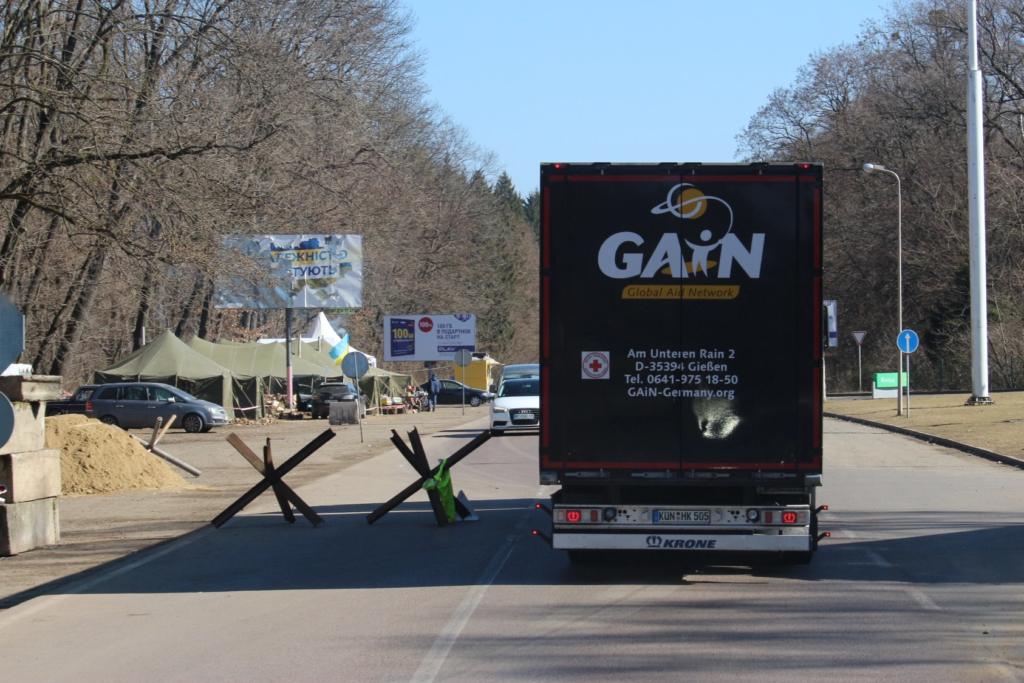
Last night was the first in which Russia attacked Western positions. Specifically, at the Lutsk and Ivano-Frankivsk airfields. At the border itself, while we wait for our passports, we join a group of carriers. I talked to two of them. They are from Ivano-Frankivsk and are going to stay. They carry water. Eyes stopped, frozen, as if moving the iris inside, searching through thoughts for answers to a war they don’t understand.
We are in Ukraine. After passing the queue of buses and refugees entering on foot, the streets become empty and inhospitable. Later we will find more traffic, more life, but here in the villages of Shehyni and Volytsya there seems to be no one left. Also, the road is terribly potholed. Although that is not the reason for the bumps, it is the feeling of entering a country at war from minute one.
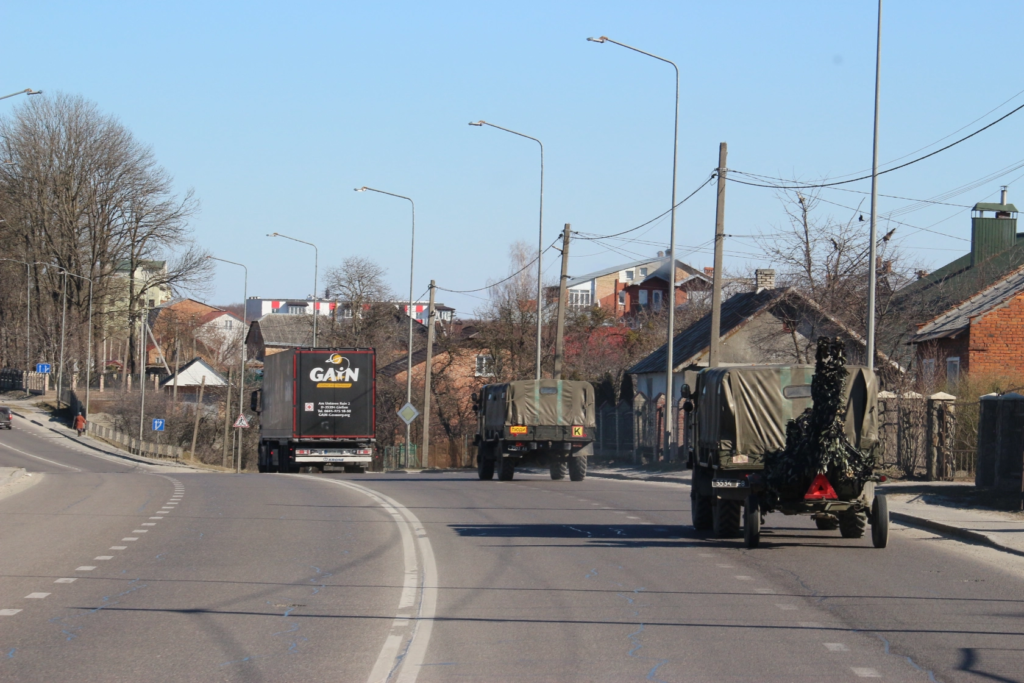
A few kilometers after Lviv we see a serious traffic accident that must have happened just a few seconds ago. If I had been in the truck in front I would not have missed it. It is not the only crashed car that we will see. It will be the nerves, or the rush, or the crossfire to which their minds are subjecting themselves.
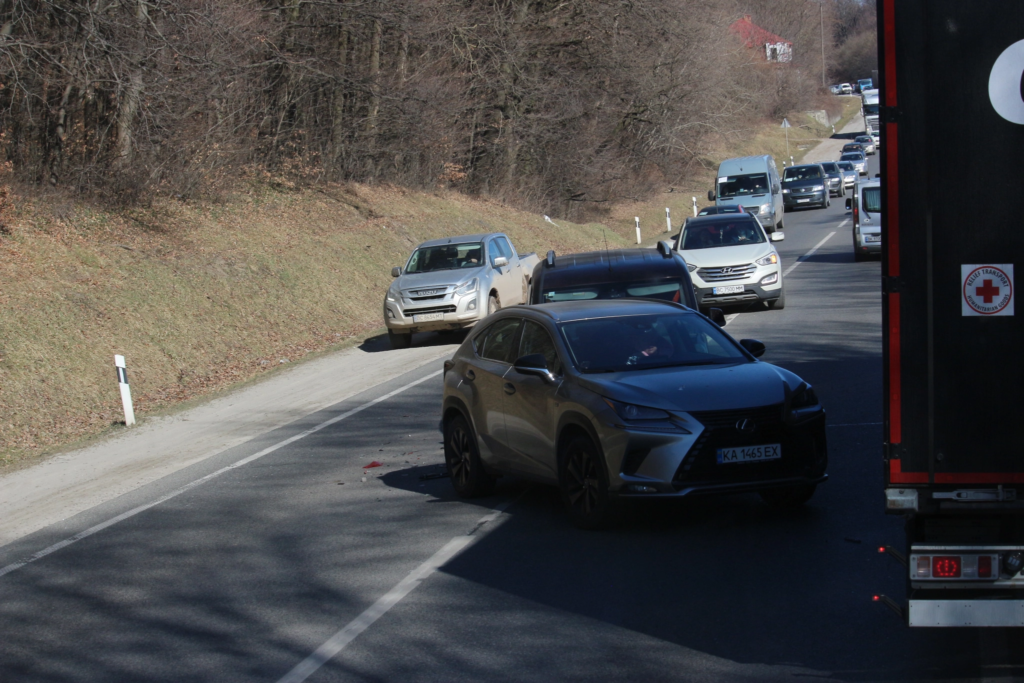
The checkpoints are not as many as I expected and in all of them they let us pass without asking when we see the humanitarian aid icon on our windshield, although by mistake it says “Ralief” instead of “Relief”, which, in reality, gives it a touch more local and folksy. To the right and left, all road exits are barricaded. Although the number of cars heading to Poland is clearly higher, there are also vehicles heading to kyiv. Perhaps the so-called twenty-four-hour ceasefire declared by Russia from eight in the morning has an influence.
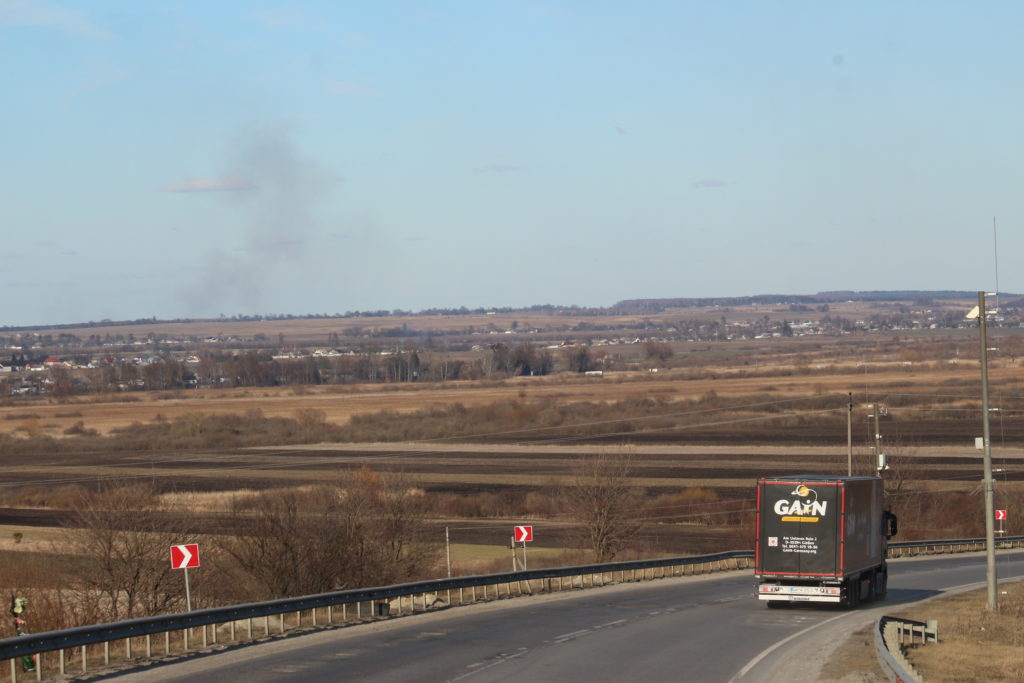
It’s after five in the afternoon. After more than five hours of driving, we reach our destination in Rivne: a warehouse that has been rented by a network of Protestant churches to bring aid to the places most affected by the war and still accessible. There, three dozen young people are waiting for us to unload the aid. Among the young people I find oddities like Andrei, 37, a Ukrainian emigrant who has come with his wife and small children from the US to help his compatriots. “I prayed to God and inside I felt that I wanted to help, I didn’t want to stay in the United States watching what was happening,” he tells me.
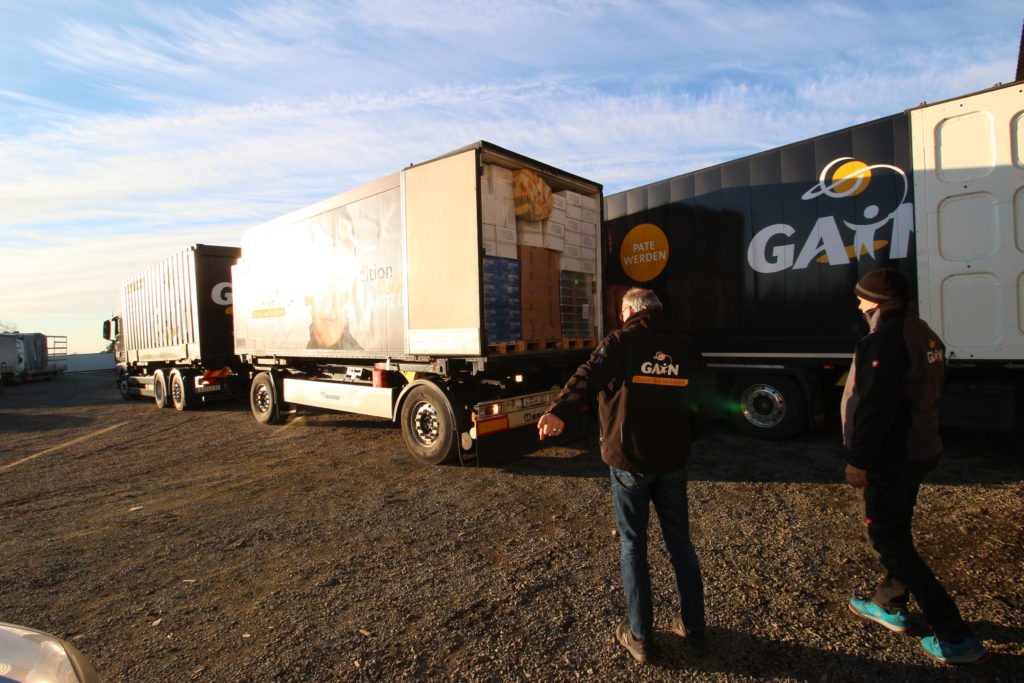
Then they take us to the church that has been converted into a makeshift shelter for individuals and families passing through Poland. As we eat dinner, one of the officers looks at me with wide eyes and utters the words, “It’s like living in a nightmare.” After dinner, while the rest do paperwork and paperwork, I meet Artem, a 19-year-old who has arrived with his grandparents. He lived with them in kyiv because he was starting his studies at the kyiv Polytechnic Institute. His parents and little sister live in Kherson and right now it is impossible for them to flee.
We are late. It’s after seven and curfew starts at ten. We shot out. At every turn I think the trailer will roll over and drag us down. We crossed more checkpoints. In one of them they catch me taking a photo. They make me go down. I erase the photos in front of them and they happily send me off. Viktor, the driver, already grumpy, gets angry. Then he won’t stop calling me “Paparazzi”.
At one of the last checkpoints, a soldier notices the Ukrainian colors and the “Ralief Support” on our windshield. He bids us farewell with his hand on his heart and bows in sincere gratitude.
We finally reached the border. It’s eleven at night. Cars, vans and buses pile up. Volunteers from World Central Kitchen go from vehicle to vehicle announcing that we can come by to pick up food while we wait. I accept the offer, but before I find the place, a colleague from the truck in front brings me bread and sausages. A few moments ago we had joked on the radio about ordering some pizzas at the border, anticipating that we were going to take a long time to leave. We are not wrong. We will end up watching the sunrise from the border.
After three in the morning, I approach the services between the Polish and Ukrainian customs. A group of refugees has gotten off one of the buses. I see mostly women and children. The last of all, a few steps away from his mother, a boy about eight years old is crying.
I immediately see in his expression that this boy is not crying because he complained or because his sister stole his toy or tablet. Nor does he cry because his mother has punished him. At that moment I discovered that there are tears and tears. This child cries in fear. Cries of frustration. He cries helplessly for not knowing or understanding what is happening. He cries of pure rage because he has had to live what no child should live.
Story by Pau A.
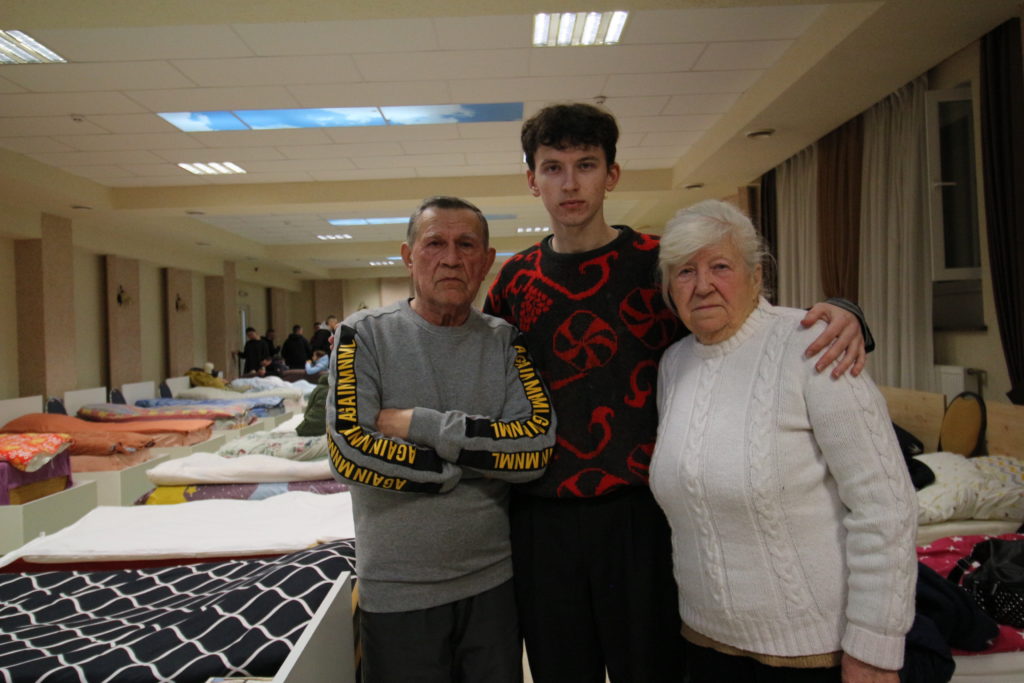
We arrive at the church in Rivne. The sun is going down, but just a little over thirty beds within the big worship hall are already occupied.
One of the pastors tells us the place will be full by midnight. People are still on the run. They usually arrive by 7pm or 8pm, and surely before the 10pm curfew. The next morning, all will be empty again, families will get back on track towards the border, and the church will get ready to host the next group.
Among the few guests who arrived earlier than usual is Artem and his grandparents. He is 19 years old. They were living in Hostomel, one of the towns in Kyiv’s outskirts that is being fought day after day by the Russian army, coveted especially because of its aerodrome.
“We left Hostomel two days ago,” Artem recounts. “Our country evacuated us because in Hostomel there is a lot of bombing and fire, so they evacuated us to Kyiv, and from Kyiv we came here with a bus.”
Artem was living with his grandparents because he was studying for a degree at Kyiv Polytechnic Institute. “Now our study is stopped, we pray that we can continue to study.” Fortunately, he still managed to escape with his grandparents, but unfortunately not his parents and sister. They are living in Kherson. “This is where the war is hitting very bad,” he explains. “We want to evacuate them too.”
That will not be easy as Kherson is one of the cities hardest hit by the war from day one. “We speak with them by phone, messages, Viber, [and] Telegram. They cry because of us, because of our situation, but they feel better for us now [since we could be evacuated]. We pray that they will be good.”
The look in his eyes, as with most of the Ukrainians we met so far, spoke on his behalf before he even pronounced any words. “It’s hard to understand,” he paused. “My friends, my family… We are under big stress. We don’t feel good, but we stay positive.”
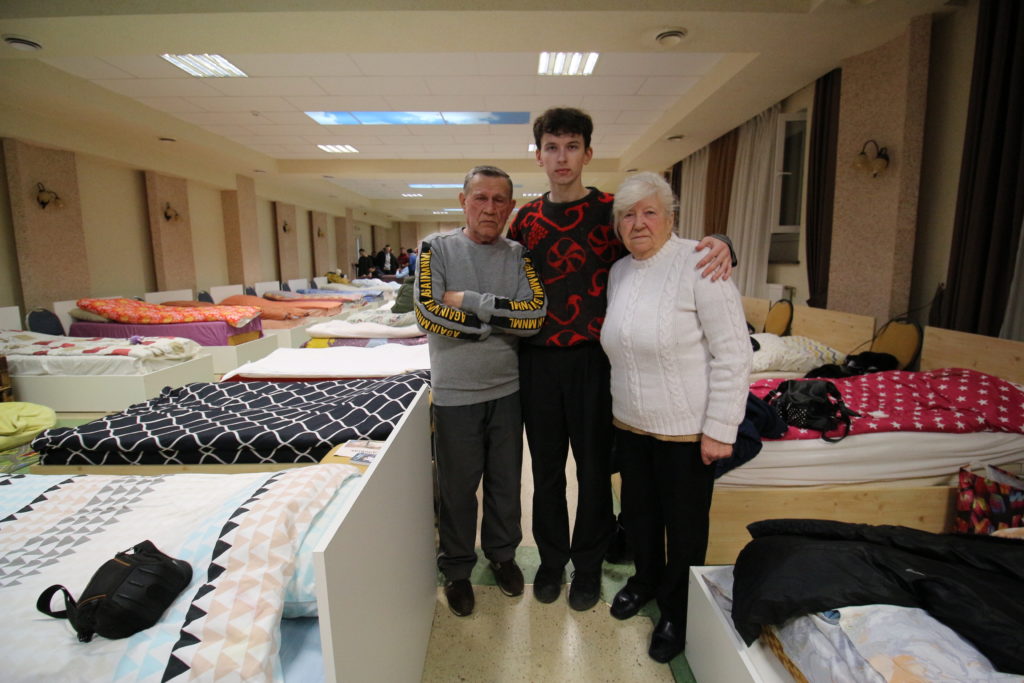
Tomorrow will be another long day for Artem. They plan to arrive in another city closer to the border, and from there maybe to Poland. But for now, probably the most urgent need for him is to stop thinking about tomorrow, at least for a little while. “We just need to sleep now, eat some food, have some fun because we have a lot of stress.”
As soon as Artem’s grandfather finds out we are here to help them, he leans in slightly – an honest sign of gratitude. I tell them this is the least we could do. After I pray for them, we wave goodbye and I wish them all the best, especially thinking of Artem’s parents and sister. We still have a long drive back to Poland ahead of us, but they have a much longer drive back to hope, joy, goals, dreams, and peace of heart.
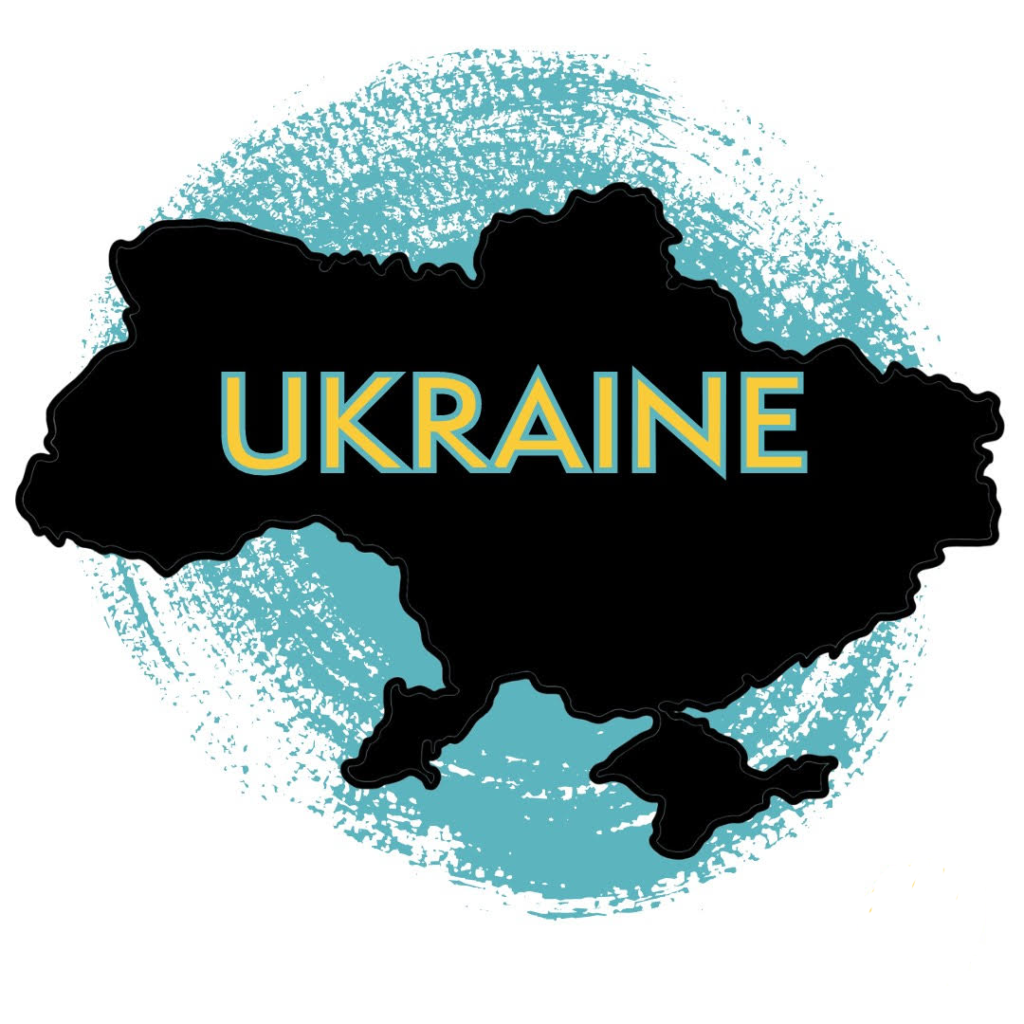
“The missile hit. Everything was on fire. I heard gunshots. It had hit my neighbours. Blood everywhere. You won’t find an answer. There is no answer. There is nothing left.” – Igor* described what he witnessed.
UN aid agencies estimate that millions of people could be displaced following the Russian invasion of Ukraine on February 24, 2022. 6.5 million people have been displaced within the country, and over 3.6 million people who have left the country urgently fleeing to neighbouring countries as they seek safety.
The terrifying sound of air raid sirens blaring throughout Kyiv, and images of locals taking shelter in underground places like subway stations, only show a glimpse of the horrific reality that many families and individuals are currently experiencing.
Many who have already left the country – mostly women and children – have been forced to separate from their husbands, fathers and brothers, as men aged 18-60 have been restricted from leaving the country for possible conscription.
“There are no winners in war, but countless lives will be torn apart.”– Filippo Grandi, head of UN refugee agency UNHCR.
There is great fear and uncertainty for the Ukrainian people. Those who have left everything behind to flee to other countries for safety are in dire need of essentials.
Will you join us as we work to provide emergency relief Ukrainians who are displaced?
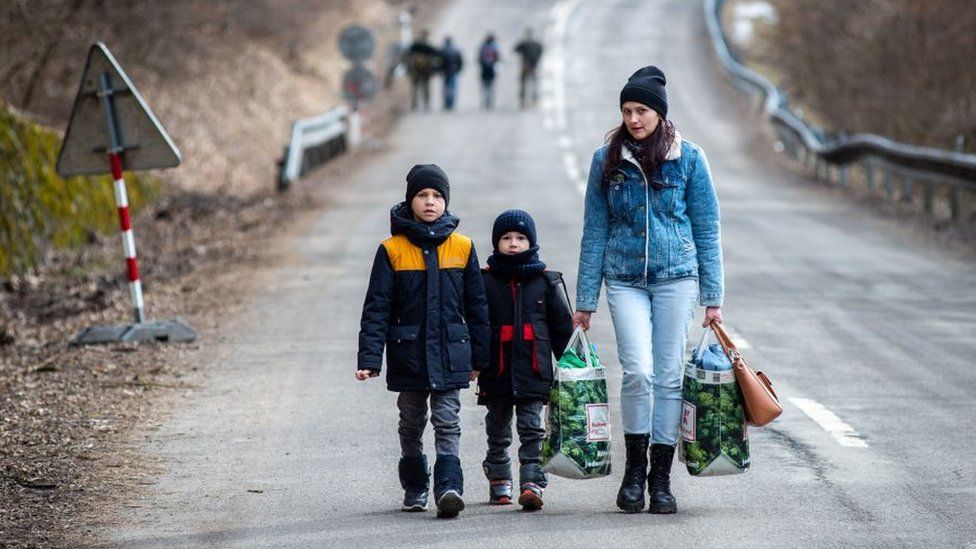
Global Aid Network (GAiN), through its offices in Germany and the Netherlands are packing and procuring essential items such as food, medicines, tents, sleeping bags and blankets to ship to their local frontline partners. These much-needed items will be provided to refugees arriving in Poland, Hungary, Romania and the Republic of Moldova.
Refugees are desperately in need of hope, peace, provision and protection. The need for aid is critical. As of April 1st, we have sent 82 shipments via truck. As the number of people affected continues to rapidly increase daily in this complex situation, we continue to help even more people during this critical time and are committed to supporting people in this time of desperation.

“The missile hit. Everything was on fire. I heard gunshots. It had hit my neighbours. Blood everywhere. You won’t find an answer. There is no answer. There is nothing left.” – Igor* described what he witnessed.
UN aid agencies estimate that millions of people could be displaced following the Russian invasion of Ukraine on February 24, 2022. 6.5 million people have been displaced within the country, and over 3.6 million people who have left the country urgently fleeing to neighbouring countries as they seek safety.
The terrifying sound of air raid sirens blaring throughout Kyiv, and images of locals taking shelter in underground places like subway stations, only show a glimpse of the horrific reality that many families and individuals are currently experiencing.
Many who have already left the country – mostly women and children – have been forced to separate from their husbands, fathers and brothers, as men aged 18-60 have been restricted from leaving the country for possible conscription.
“There are no winners in war, but countless lives will be torn apart.”– Filippo Grandi, head of UN refugee agency UNHCR.
There is great fear and uncertainty for the Ukrainian people. Those who have left everything behind to flee to other countries for safety are in dire need of essentials.
Will you join us as we work to provide emergency relief to those who are displaced?

Global Aid Network (GAiN), through its offices in Germany and the Netherlands are packing and procuring essential items such as food, medicines, tents, sleeping bags and blankets to ship to their local frontline partners. These much-needed items will be provided to refugees arriving in Poland, Hungary, Romania and the Republic of Moldova.
Refugees are desperately in need of hope, peace, provision and protection. The need for aid is critical. As of April 1st, we have sent 82 shipments via truck. As the number of people affected continues to rapidly increase daily in this complex situation, we continue to help even more people during this critical time and are committed to supporting people in this time of desperation.
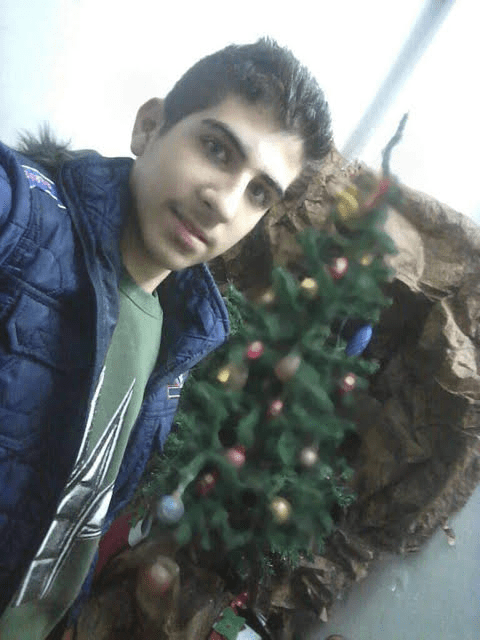
Kaiden* is a high school student. He lives with his family and regularly attends church meetings. His family is very poor and as the oldest son, he is working to help take care of them. Every summer, Kaiden works to help his family save money for the school year. His job is essential to him being able to continue his education.
The pressure and burden of having to help support the family is a lot for a high school student. When Kaiden heard that Global Aid Network (GAiN)’s partner, a local church in Damascus, provides Bags of Blessings (bags that contain food and non-food items for a family of five), he went to attend and ended up meeting Jesus. Today, Kaiden is growing steadily in his relationship with Christ.
GAiN has been involved in Syria since 2013, and has been working steadily with our local partner for eight years. Since then, tens of thousands of Bags of Blessings have been distributed and the gospel has been presented to 16,763 people – resulting in 5,992 people who have made the life-changing decision to follow Christ.
The Bags have helped to alleviate some of the burdens that Kaiden has had to carry for his family. With the provision of food and other items in the bag, Kaiden can put some more money toward his education and future.
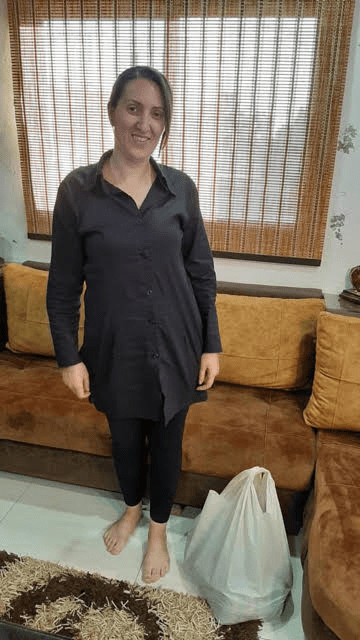
Sahar* understands the daily struggle Kaiden lives with. She, too, had to overcome many obstacles in her life, including her father losing his job in 2016. Sahar has a brother with physical disabilities and has to work to provide food for the family. Currently, all of her salary goes toward rent for their apartment.
In 2018, Sahar’s father sadly passed away and they had no money for a funeral. When God provided the money from a church that had heard about her situation, Sahar then started to really think about Christ. When Sahar was invited to the church in 2020, she attended with caution. Brother Salih*, from the church, spoke with her and encouraged her to depend on God, who can provide for her needs. At the time, Sahar’s suffering had been so great over the years that she didn’t believe it would happen. Although she told Brother Salih that she believed and accepted what he was saying, in her heart, she didn’t feel it to be true.
After a few days, Salih and his wife visited Sahar. There, they had the chance to share the gospel with her, in which she accepted Christ as her saviour, through tears of joy. She also received a Bag of Blessing and was surprised that God knew exactly what her needs were. He had provided for her at the right time, considering she had nothing to eat that day.
Today, Sahar is a strong believer and shares the gospel with others, and attends a discipleship group.
Kaiden and Sahar are just two of the tens of thousands of people whose lives have been touched in some way since the start of the Bags of Blessings program, thereby revealing hope and restoring life to the people of Syria.
*Name has been changed for security purposes.
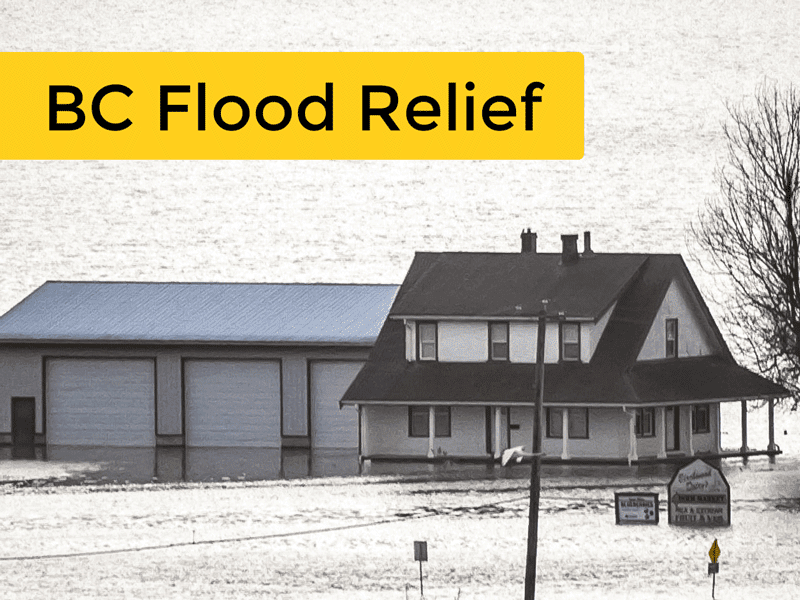
On November 17, the BC government declared a state of emergency due to widespread flooding across the province. Tens of thousands of people have had to evacuate, leaving behind their homes, businesses and entire livelihoods.
The effects of the flooding hit close to home as parts of the Lower Mainland region (Abbotsford, Mission, Chilliwack, Hope), where many of our staff and partners live, have been significantly impacted.
“The Fraser Valley flooding has impacted our immediate family, friends and the greater farming community. We have observed first-hand the tragic loss that many families have experienced. However, the strength and resilience in this community is like no other; selfless in their dedication to help each other.” Ben & Ashley VanDorp
Nathan and Shena Gorter share: “Our hearts are broken as we check in with our friends and church community, who are affected by rising waters in Sumas Prairie. There are tremendous heroic efforts taking place by farmers, first responders, volunteers, churches, and friends to save people and livestock and provide essentials for living. People are exhausted physically and emotionally and we continue to pray and turn our eyes towards Jesus to gain strength as efforts continue hour to hour.”
Please join us in prayer for:
- Safety and peace for families, individuals that have evacuated and vulnerable populations
- Safety for first responders and those working hard to clear the roads and manage the community water systems
- That the damage to homes and properties would be minimal and that livestock would be able to be moved to a safe location
- The infrastructure that it would continue to hold, and there would be no more challenges introduced into the already complex situation
We are partnering with Samaritan’s Purse, which is in charge of the evacuee shelter in Abbotsford. Together we will provide aid and support to evacuees who have been impacted by the floods. Will you join us* in demonstrating God’s love through compassionate action to those who are suffering?
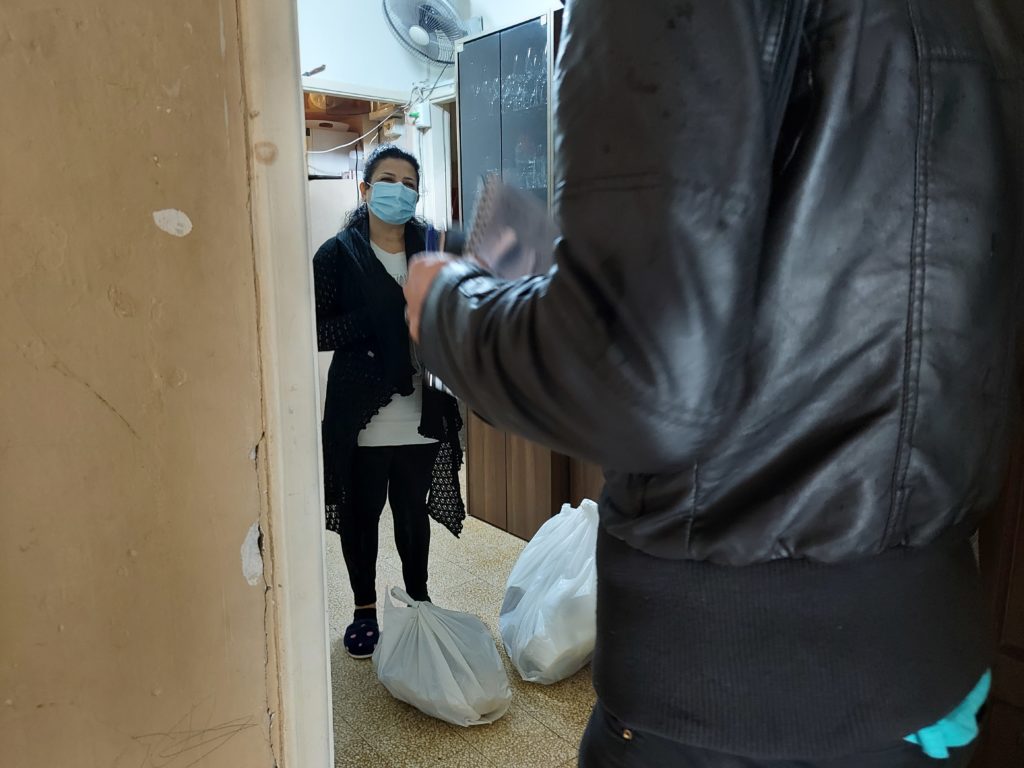
Out of the visits came meaningful interactions and conversations with hundreds of people. Hasnaa and her husband were one of those meaningful conversations. They shared their need with our partners, telling them how this pandemic has been hard on them as a family. The team prayed for them and shared the gospel message with them. Hasnaa and her husband expressed interest when they were invited by the team to go to church. “Hopefully, one day, after the lockdown is over, we will join.”
Our partners also had the opportunity to spend time with a lovely lady named Fadia, who lives with her son, daughter, and grandchildren. She shared that after the explosion her grandson started experiencing recurrent, unexpected panic attacks, requiring special medicines to help him cope. With the current state of the country’s economy, Fadia’s family was unable to afford to go to the doctor and buy the medicine from the pharmacy.
“You have no idea how much you’ve helped us by bringing us this food pack,” Fadia commented. “You’ve taken off some of our burden, really, thank you.”
Another meaningful conversation we had was with Salwa. It started off when the team received a frantic call from her, asking if they could urgently help her. She was so anxious while she waited, that she got very excited when she saw them heading toward her on the street., “You actually came! Other organizations would say they are coming but never show up, I’m just so happy you guys came to see my situation.”
Salwa explained that it had been months since she could afford to buy food. “You have no idea how much I needed this and how I appreciate this food you brought,” she said through tears.
While some of the team was talking to Salwa, another team member noticed a boy staring at him from inside, so he went to him. The boy was Salwa’s son. A team member sat with him and talked about basketball. The conversation moved to Jesus, how much Jesus loved him and that God has a great plan for him.
Salwa told the team that she was happy that they had a spiritual conversation with her and her son. She shared, “I want my son to grow up and be like you. [To grow up to] love God the way you all do and to help others.”
After prayerfully considering the situation in Lebanon and the people we are serving, our desire is to continue to provide until December 2021. We’ll continue to provide food packs for 400 families (an additional 100 families due to the worsening situation), medicine and medical treatment for those in need, along with minor house repairs, basic home needs like beds, mattresses, blankets, and appliances.
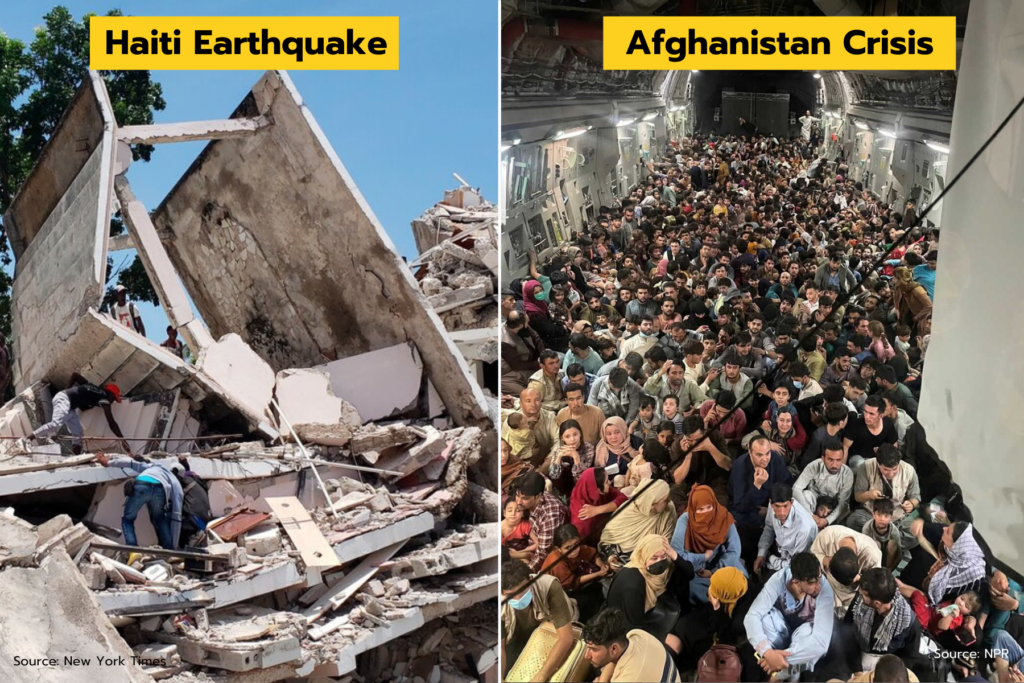
This past week has been heavy with grief as we are witnessing multiple global humanitarian crises in the news. Images of Haitians being surrounded by debris and rubble, following an earthquake that is reminiscent of the quake that devastated the country in 2010; and video footage of Afghans risking their lives to escape their country, after the takeover of the government by the Taliban; are just two examples of the harrowing realities that families and individuals are facing right now.
No matter the geographic location or type of disaster, the suffering of the people and the need for hope is evident. Global Aid Network (GAiN)’s mission is to reveal hope by sharing God’s unconditional love, and restore life by demonstrating the gospel through compassionate action to those who are living in poverty, injustice and crisis.
Haiti has had to endure back-to-back natural disasters, leaving people displaced, without food, water or shelter. The 7.2 magnitude earthquake struck on August 14, and Tropical Storm Grace swept the area just two days after, adding to the hardships of those already displaced. More than 2,000 have been reported dead, about 12,000 are injured and entire villages have been completely destroyed. These disasters came at a time when the country was already experiencing political instability and an increase in gang violence.
Meanwhile, the people of Afghanistan are facing great uncertainty and fear. On August 16, following mounting tension and conflict, the Taliban (radical Islamist movement) took power as the government collapsed. Civilian deaths were already on the rise before the latest incident. Now there is concern, particularly for women and children, who are most vulnerable and at risk of having their basic rights and freedoms taken away; and for Christians in the country that have their safety and lives threatened under Taliban rule.
With so much suffering, injustice and trauma, we are working to do what we can, through our local partners, to respond to these disasters.
In Haiti, we are working with a local church partner to provide immediate relief to families in need, through relief packages. This includes water, food, medicine, and temporary shelter materials.
At the same time, we are connecting with like-minded groups to support the body of Christ in Afghanistan, both during this immediate and uncertain time, and for those who escape from the country.
The people of Haiti and Afghanistan are desperate and in great need of the hope and protection that Jesus can provide.
Will you join us in demonstrating God’s love through prayer and compassionate action to the people of Haiti and Afghanistan?
